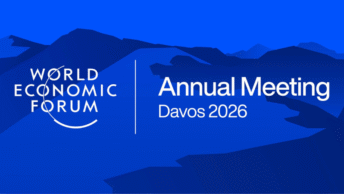
Innovative Swiss Private Sector Government Collaborations Protecting National Sovereignty
While the EU’s political centre held its ground better than expected against the advancing far-right in June’s hotly contested European elections, the new European Parliament will have to grapple with troubling economic ideologies from all sides. As Bill Echikson of the Centre for European Policy Analysis astutely observed recently, newly elected MEPs must crucially resist the easy lure of digital protectionism.
Throughout a polarising campaign dominated by immigration anxieties and Green Deal bashing, tech was conspicuously absent. This is particularly concerning given the digital economy’s pivotal role in enhancing the EU’s competitiveness as the bloc’s GDP and productivity levels continue to trail well behind other regions, particularly the United States. In the new term, the EU Parliament should “push back against misguided notions of digital sovereignty,” in Echikson’s words, and counter an insular turn that would doom the bloc’s long-term economic power.
Instead, Europe must bolster its tech-driven innovation ecosystem by forging private sector-led partnerships with foreign enterprises and governments worldwide, taking a page from the playbook of the continent’s innovation leader, Switzerland.
Europe’s Undisputed Champion of Innovation
Surrounded by EU countries facing lagging productivity growth relative to their transatlantic counterpart, Switzerland has managed to avoid its neighbours’ issues of insufficient R&D spending and inward investment that have hindered economy-spurring innovation.
Indeed, Switzerland’s startup scene is a hotbed of innovation, talent, and opportunity, bolstered by seamless, strategic links between incubators, universities, and strongly supportive government authorities. This well-crafted foundation continues to pay serious dividends, with the World Intellectual Property Organization’s (WIPO) Global Innovation Index (GII) 2023 recognising Switzerland as the most innovative economy for the 13th consecutive year, besting heavyweights like Sweden, the United States, and Singapore.
Despite its small size, Switzerland commands significant investment capital, boasting one of Europe’s highest VC funding per capita—in 2022 alone, DeepTech ventures attracted a remarkable €1.5 billion in investment. ETH Zurich, a global academic leader in computer science, has been instrumental in spawning numerous successful spinouts, while Swiss government grants, loans, and awards further energise this vibrant ecosystem, helping entrepreneurs turn bold ideas into thriving businesses.
In fact, Switzerland has successfully turned its small size into a remarkable asset, with its geographical limitations simplifying the creation of industrial clusters that lead to well-documented productivity and innovation benefits, while pushing the country’s firms to look outwards and collaborate with foreign players to scale-up solutions and maximise global impact.
Innovation Spotlight on Vaud
Exemplifying the latter element is the Sino-Swiss innovative strategic partnership launched in 2016—China’s first such collaboration with a foreign country—which Swiss Federal Councilor Guy Parmelin has hailed as a testament to both country’s “pioneering spirit.” Meanwhile, Switzerland’s ability to create highly innovative economic clusters has acted as a launch pad for this international cooperation, with Parmelin’s native canton of Vaud establishing itself as the epicentre of this activity.
At mid-June’s London Tech Week, Startup Genome and the Global Entrepreneurship Network launched the 2024 Global Startup Ecosystem Report (GSER), ranking Vaud’s Greater Lausanne Region as 11th among over 300 global entrepreneurial innovation ecosystems—representing a year-on-year rise of 16 places. At the event, the Vaud government’s innovation agency, Innovaud, and innovation hubs Biopôle and unlimitrust campus teamed up with Startup Genome to spotlight the Greater Lausanne ecosystem’s considerable weight.
From 2021 to 2023, this thriving tech innovation scene created $15.5 billion in ecosystem value—representing 25% compound annual growth compared to the previous two-year period. What’s more, Lausanne has achieved Top 15 positions in key innovation areas, including research, patent activity, and tech startup value, with Trust Tech, Robotics, and Life Sciences spotlighted as its most promising sectors for startup activity and support resources.
Bold Swiss Partnerships Accelerating Progress
In this space, global security and authentication solutions provider SICPA has established itself among the leading Swiss companies fueling Lausanne-based tech innovation through an ambitious, cross-sector partnership approach.
SICPA’s unlimitrust campus, launched last year, notably in the presence of public sector innovation champion Guy Parmelin and the President of the Council of the State of Vaud Christelle Luisier, has become a regional beacon of innovation in advanced security technologies needed to ensure a competitive, productive “economy of trust” amid growing cyber, data privacy and fraud threats. In November 2023, the unlimitrust campus formally integrated Innovaud along with Vaud’s seven other tech innovation incubators, forming a broad coalition union that has pooled together the funding, tech, and talent resources needed to take Swiss innovation to the next level.
While firmly rooted in the Lausanne area, the unlimitrust campus is resolutely international in scope, accommodating researchers, startups, entrepreneurs, and large businesses across the Trust Tech world to facilitate the creation and scaling up of new security technologies. Supported by the public sector’s strong regulatory foundation, unlimitrust, Innovaud, Bipôle, the EPFL Innovation Park, and other leading innovation players in the region have created a highly attractive ecosystem for inward investment and international top talent in research and industrial production.
Leveraging its international presence, SICPA is equally exporting Swiss innovation expertise to other continents, striking strong collaborations capitalising on mutual strengths. For example, at the Marrakech-hosted GITEX Africa 2024 in May, SICPA and UAE-owned Oumolat Security Printing struck a strategic partnership to develop new high-security traceability solutions geared at bolstering government sovereignty by enhancing illicit trade monitoring and tax collection for key supply chains.
This collaborative, international approach to digital sovereignty has notably caught the eye of Malaysia, a cybersecurity leader in southeast Asia, with a parliamentary delegation recently meeting with SICPA, the CyberPeace Institute and other Swiss security tech actors to explore how the Swiss innovation model can improve digital governance in Malaysia.
Wake-up Call for EU
With the aftermath of the EU elections showing worrying calls for a fortress Europe agenda in the European bloc, incoming MEPs should take note of Switzerland’s progressive, outward-facing approach to digital innovation, productivity and sovereignty, and resist this isolationist pitfall.
Indeed, while the new mandate should focus on bolstering EU competitiveness and digital sovereignty, Brussels must not let a deteriorating global security and geoeconomic situation lead to an insular turn. By ramping up innovation investment, entrepreneurship, and international partnerships with reliable, democratic partners, the EU will finally be able to reverse its sluggish productivity and strengthen digital security and sovereignty in the face of emerging economic threats.








